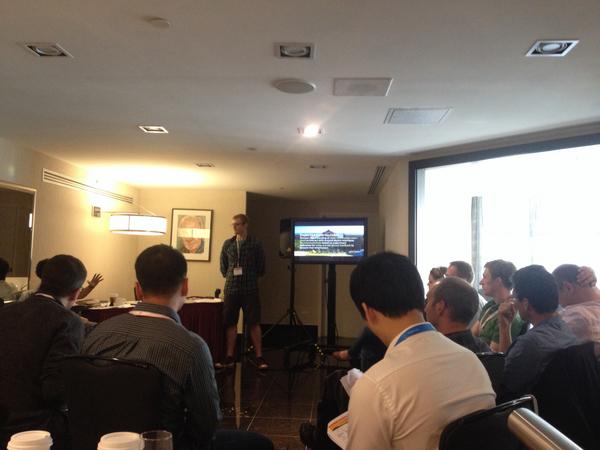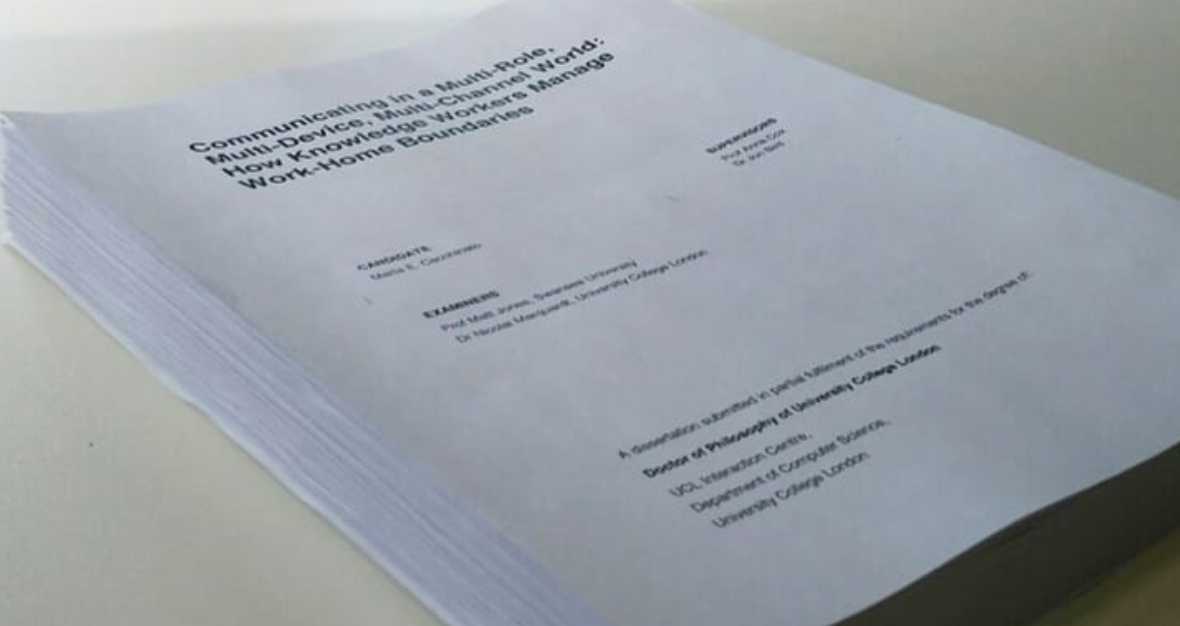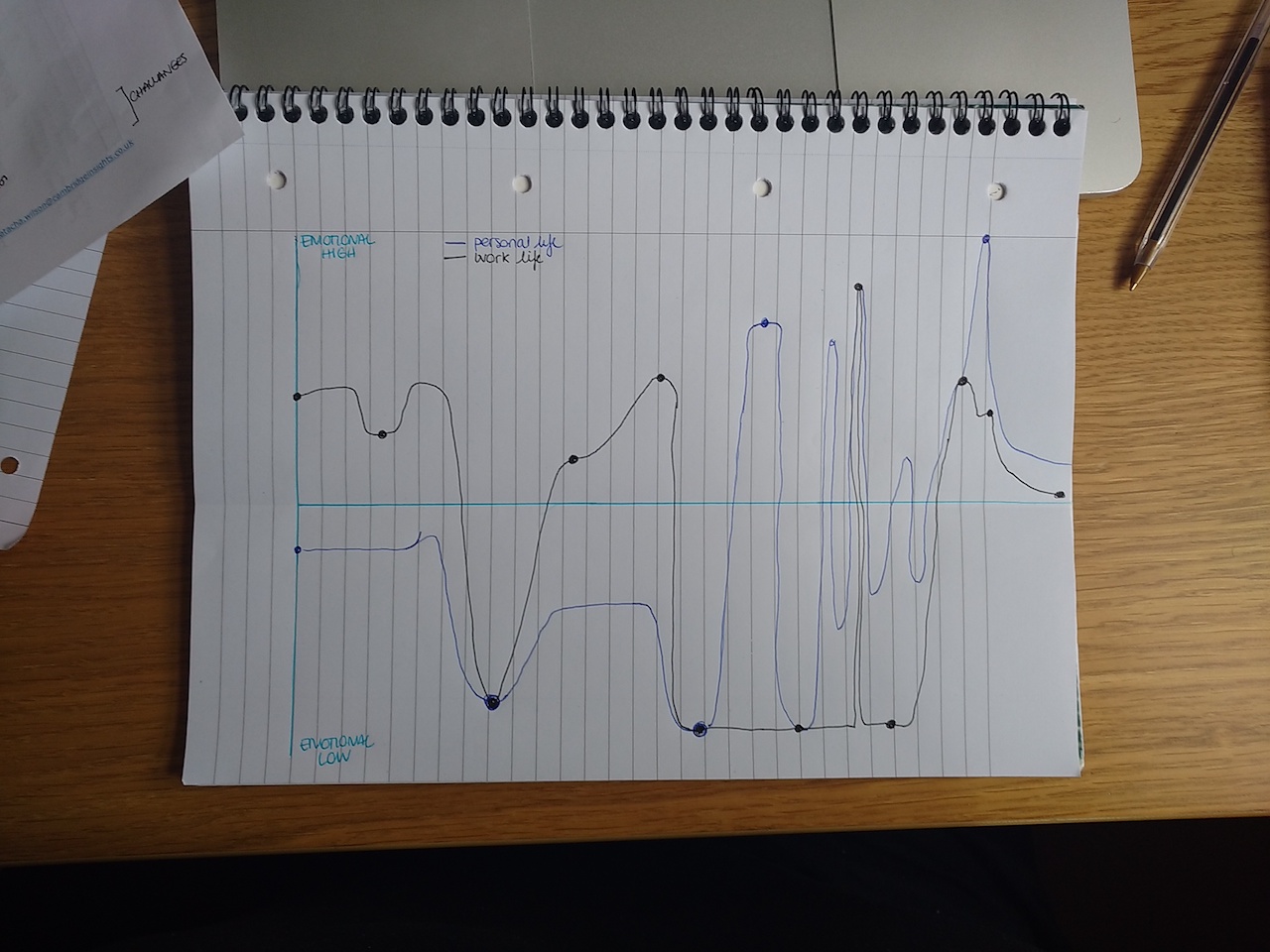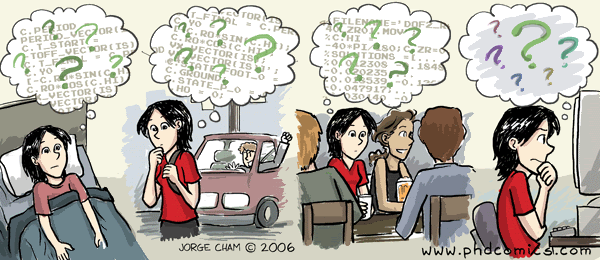- talk about your research,
- get feedback from experts who are not directly involved in your research, but have a good understanding of the broader area, and
- network with peers (but not only). All this in a supportive but critical environment.
The day was organised so each of the 8 students could present their work for 15 minutes, followed by a 45 minute discussion session where assigned students and faculty members could ask questions, before allowing the conversation to open up to the whole group. In a way, it was good to hear that a few times throughout the day the comments “you should narrow down your research topic” or “interesting, but… what is your final contribution going to be?” popped up. It’s reassuring to know that in this very solitary job as a PhD student, we are all struggling through the same things and every once and a while we need that reassurance. Because of an important paper deadline right the day before, I wasn’t able to practice my presentation and prepare as well as I had hoped – but to be honest, I was so exhausted by the deadline that I didn’t worry to much. I was going to talk about my whole PhD plan and initial findings, and having worked on it for nearly a year by then I knew what I was talking about without having to practice. I didn’t quite feel the same way when my turn came to present, so I decided to record myself and see what I could learn from this. The questions that followed were thought-provoking and I especially appreciated how they made me realise I was focusing much on the HOW, but I should (also) be looking at the WHY. It might seem like an obvious cut to give to your research, but once you’ve dived deep into it, it’s hard to resurface and look at the bigger picture again. By the end of the day I was a bit overwhelmed and needed time to let the feedback sink in. So here I am, two weeks later, and after having listened to my recording, explaining what I learnt from it and why I believe it is crucial to attend a Doctoral Consortium, especially in the first year:
-
My presentation went considerably better than I thought!
What did not help my presentation was the fact that I kept justifying and undermining myself and commenting out loud on things I was not going to present because of time. NEVER DO IT. The audience doesn’t know what you are planning to say, so they won’t know if you’ve missed out on something. I know this in theory, but need a bit more practice. Plus, all those voices in your head that tell you “you are giving the worst presentation of your life”, “why should anyone give a crap about your research?”, “what you’ve done is not worth much, you’re only a first year student!”…. they don’t help. But the audience can’t hear them!! Besides, I am now in my second year, so one of them will hopefully shut up! -
You get asked questions that make you reconsider your work - and you've still got time to change your plans.
One of the faculty members questioned one of my future studies, arguing it might not have much of ecological validity. I had the same concern but his point made me realise that I actually wanted to take a different approach in my research and study email practices in real-world context, rather than rely on a setup that is more fictional. -
It builds your confidence.
Knowing that other students are in the same shoes, even if at different point in their PhDs, can be worrying (when you see older students who still struggle), but ultimately it’s reassuring that you can’t be much off track. -
It helps you network then and there, and during the conference.
You get to know ‘quite well’ a small group of people, which means that then you have familiar faces to go talk to during the conference. That week, I had the chance to have lunch to discuss more in depth my research with one of the other students, who gave me some suggestions on a few tools I could use. It was also a good opportunity to talk about different approaches to qualitative analysis.




2 Comments
PhD life 101 – Marta E. Cecchinato · 2nd October 2016 at 8:55 pm
[…] Publish and Present. Even if it’s a workshop paper, or a talk in your small research group. Presenting your work to other people, verbally or in written format, is the best thing you can do. It forces you to think what is the message you are trying to get across. Take part in as many opportunities you can. And don’t underestimate how long a talk takes to prepare. Also, go to a doctoral consortium. Two if you can. You can read more about why it’s a good thing here. […]
PhD life 101 · 27th April 2017 at 4:33 pm
[…] Publish and Present. Even if it’s a workshop paper, or a talk in your small research group. Presenting your work to other people, verbally or in written format, is the best thing you can do. It forces you to think what is the message you are trying to get across. Take part in as many opportunities you can. And don’t underestimate how long a talk takes to prepare. Also, go to a doctoral consortium. Two if you can. You can read more about why it’s a good thing here. […]